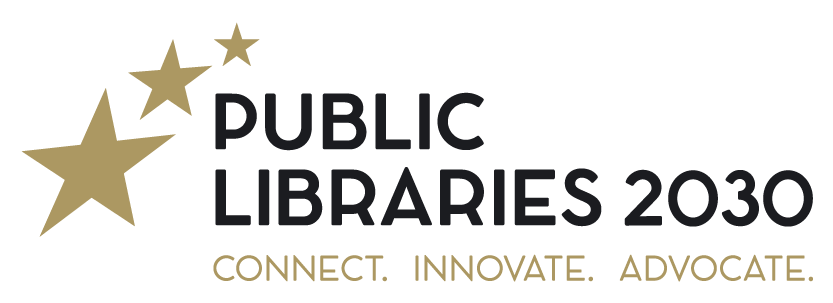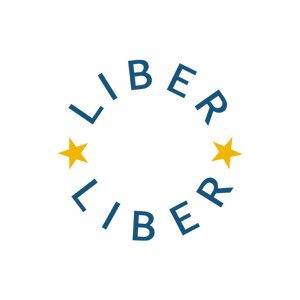

Libraries are gateways to knowledge and information, from classical literature to the latest research. Indeed, they are for many Europeans, the most local cultural infrastructure, providing a space to be inspired, feel safe, and recharge. Crucially, they fulfil the fundamental human right to participate in the cultural life of the community.
Beyond this, they are also key players in the field of non-formal education, offering digital, literacy and media upskilling to diverse groups of our society. Through their deep knowledge of the needs and cultures of their users, they develop programmes that make a real difference to people’s lives, opening up new opportunities.
Under the current mandate, the agreement of the EU Work Plan for Culture has created a possibility to take understanding of this role – and how we can enhance it – further at the European level. Now is the time to deliver!
We therefore urge the European Union to:
- Dedicate funding lines in EU programmes for education and culture for projects engaging libraries
- Support and facilitate EU-wide training and peer learning for library professionals and facilitate the sharing of portals and tools among libraries in different member states
- Strengthen library infrastructures – including digital infrastructures – so that every European can benefit from great library services

We believe that libraries can empower citizens to create a democratic, socially engaged and digitally inclusive Europe. As well as being spaces for individual learning and enjoyment of culture (themselves essential for democracy), they are key spaces for building community and civic engagement. The EU Work Plan for Culture recognises the multiple role of libraries as bridge builders.
A particularly important role for libraries is in promoting information integrity and the skills to value and recognise it. Across Europe, libraries have long been active in devising programmes for communities, but now need to be systematically brought into national and European strategies in order to enhance their contribution still further.
Libraries are also part of any wider effort to ensure better informed decision-making, in governments, parliaments, and the wider population. As the importance of knowledge management, as a basis for resilience and innovation grows, Europe will need libraries of all types more and more. .
We therefore urge the European Union to:
- Include dedicated budget lines in EU funding programmes to support citizen engagement activities in public libraries and EU wide training and peer learning processes for library staff
- Initiate further research on participatory and citizen engagement activities in public libraries and underline the need for libraries to be central to information integrity strategies
- Collaborate with public libraries to communicate about policy related topics with EU citizens, including democracy, sustainability and digital transition

The European Union is already a world leader in Open Science, supporting the development of infrastructures and policies at the institution, national and international levels to make this a reality. It is reaping the rewards in terms of the pace, quality and reach of research outputs.
Europe can continue to strengthen its research base in the coming years not only by continuing its current excellent work on research, but also be ensuring that its wider approach to law and regulation is coherent with this.
Libraries are also leaders in delivering on the potential of citizen science. This has huge potential to build literacy and understanding of science among the public, but also to enable types of research which might otherwise not be possible.
We therefore urge the European Union to:
- Reaffirm and reinforce its existing focus on open science, in particular through measures which offer certainty and clarity, such as secondary publication rights and enabling rights retention
- Affirm research as a regulatory principle, and ensure that its wider action, including copyright, impact assessment process, and work around competition and markets complements rather than undermining this
- Dedicate support to encouraging and sharing effective practices around citizen science, and the role of libraries in delivering this

Libraries are essential parts of Europe’s infrastructure for maintaining its memory, and ensuring that we are able to draw on its lessons and strengths for the future. Yet documentary heritage is too often left out when exploring the role and potential of heritage.
Exciting initiatives such as the New European Bauhaus need to take this heritage into account, while Europe’s international leadership on integrating culture into wider development policies should be mirrored in efforts to promote culture-centred progress, building on libraries.
It is also critical to continue investing in ensuring that Europe’s heritage, in all its diversity, is accessible to all Europeans, and that there are the possibilities for all to draw on and use this heritage to drive further creativity.
We therefore urge the European Union to:
- Ensure that wider programmes on culture should take full account of the importance of documentary heritage and engagement in it, including in the EU’s approach to culture and sustainable development
- Use the review of the Copyright Directive to explore how far access to out-of-commerce works has expanded, and promote more effective access
- Ensure that libraries are able to acquire and give access to eBooks, through born-digital or digitised texts

Through its external partnerships and support for development, the European Union has the ability to make change happen globally. Working with library systems and libraries in the rest of the world provides a channel for accelerating inclusion, innovation and growth all the way into communities, notably by drawing on ideas and experience within Europe’s own libraries.
The European Union also has a major voice on the international stage. The EU has already been a champion for the inclusion of culture as a development goal in the EU and G20 contexts, and in the course of the next Parliament and Commission will be a key player in designing the post-2030 Agenda.
Finally, the work of libraries is enabled by appropriate rules around intellectual property and more. Yet too many countries have not had the opportunity or support to update rules for the digital age, and cross-border collaboration remains complex. The EU, through its work at the World Intellectual Property Organization and in trade deals, can help lead the way in helping others catch up.
We therefore urge the European Union to:
- Ensure its own programmes of support for development in other parts of the world make maximum use of libraries as a delivery infrastructure
- Continue to champion the need for a culture goal in the post-2030 development agenda, as well as the importance of informed and empowered societies
- Take a positive approach to international copyright reform, in order to enable libraries globally to carry out their missions, within and across borders
CONTACTS
- Public Libraries 2030: Ilona Kish
- EBLIDA: Mikkel Christoffersen
- IFLA: Stephen Wyber
- NAPLE: Stuart Hamilton
- LIBER: Martine Pronk





